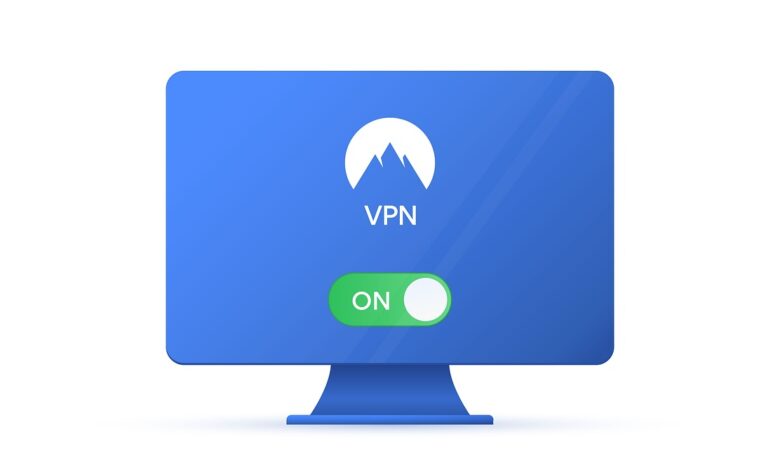Two Arrested in Landmark Nursery Cyber-Attack Investigation

Two Arrested in Landmark Nursery Cyber-Attack Investigation
Estimated Reading Time: 5 minutes
- Cyber-attacks are pervasive, affecting even seemingly secure sectors like nurseries, emphasizing the universal vulnerability to digital threats.
- A significant breakthrough led to arrests in a London nursery hack, underscoring law enforcement’s commitment to combating cybercrime.
- Breaches lead to severe consequences, including parental anxiety, reputational damage, financial strain, and legal ramifications under data protection laws like GDPR.
- Nurseries must implement robust cybersecurity measures, such as regular audits, MFA, staff training, and secure backups, while parents must practice online vigilance.
- Proactive security measures and a collective effort from institutions and individuals are crucial for protecting sensitive data and fostering a safer digital environment.
In an increasingly digital world, the invisible threat of cyber-attacks casts a long shadow, reaching into every corner of our lives—even those we consider most innocent and secure. The recent news of arrests related to a cyber-attack on a chain of nurseries serves as a stark reminder that no sector is immune to sophisticated digital threats. This incident underscores the critical importance of robust cybersecurity measures, particularly when dealing with the sensitive data of our most vulnerable population: children.
The Metropolitan Police have confirmed that a significant breakthrough has been made in a high-profile case. Pair held by police investigating a hack on a chain of London-based nurseries. This development marks a crucial step in bringing those responsible for such egregious breaches to justice, offering a glimmer of hope to affected families and businesses. Yet, while arrests are a positive step, the incident itself compels us to look deeper into the vulnerabilities, consequences, and essential preventative strategies surrounding data security in sensitive environments.
The Alarming Incident: A Breach of Trust and Data
The news of a cyber-attack targeting nurseries sends shivers down the spine of any parent or guardian. Nurseries are entrusted with far more than just the daily care of children; they hold a treasure trove of sensitive personal information. This includes not only the names, addresses, and birthdates of children but also medical histories, dietary requirements, emergency contact details, and often, parents’ financial information for billing purposes.
When such a repository of data is compromised, the ramifications are immediate and severe. For parents, the primary emotion is often fear and anxiety. Concerns about identity theft, financial fraud, and the safety of their children’s digital footprint become paramount. The feeling of betrayal, knowing that a trusted institution failed to protect their personal information, can erode confidence and trust in the system as a whole.
For the affected nursery chain, the impact extends far beyond the immediate operational disruption. Reputational damage can be catastrophic, potentially leading to a loss of enrolment and significant financial strain. The costs associated with a cyber-attack are multifaceted, encompassing forensic investigations, data recovery, legal fees, public relations management, and potential regulatory fines under data protection laws like GDPR.
Cybercriminals often target organizations perceived as having weaker security protocols, or those with highly valuable data. Nurseries, often operating with limited IT budgets and resources compared to larger corporations, unfortunately fit this profile, making them attractive targets for malicious actors seeking to exploit vulnerabilities for financial gain or other nefarious purposes.
Navigating the Aftermath: Legal & Ethical Ramifications
The arrests signify the serious nature of cybercrime and the dedication of law enforcement agencies to pursue justice. A cyber-attack is not merely a technical glitch; it is a criminal act with profound real-world consequences. Investigations like this delve into the methods of attack, the identity of the perpetrators, and the extent of the data breach, often leading to charges of computer misuse, fraud, and other related offences.
Beyond criminal prosecution, organizations that suffer data breaches face a complex web of legal and ethical responsibilities. Data protection regulations, such as the UK’s GDPR, impose stringent requirements on how personal data is collected, stored, processed, and protected. Failure to comply can result in significant fines, public reprimands, and legal action from affected individuals.
Ethically, nurseries have a profound duty of care to protect the vulnerable data they hold. Transparency and proactive communication with affected parents are crucial in the aftermath of a breach. Rebuilding trust requires demonstrating a clear commitment to enhancing security, offering support to those affected, and learning from the incident to prevent future occurrences. The road to recovery for a compromised organization is long and demanding, highlighting the invaluable nature of preventative security measures.
Fortifying Defences: Essential Steps for Nurseries & Parents
While the threat of cyber-attacks is pervasive, there are actionable steps that both nurseries and parents can take to bolster their defences and mitigate risks. Proactive measures are always more effective and less costly than reactive damage control.
1. Robust Cybersecurity Infrastructure for Nurseries
- Regular Security Audits: Engage professional cybersecurity firms to conduct regular penetration testing and vulnerability assessments. This helps identify weaknesses before criminals can exploit them.
- Multi-Factor Authentication (MFA): Implement MFA for all staff access to critical systems and data. This adds an essential layer of security, making it significantly harder for unauthorized users to gain access even if they have a password.
- Staff Training and Awareness: Human error is a leading cause of data breaches. Regular training on identifying phishing emails, strong password practices, and secure data handling protocols is paramount for all employees.
- Data Minimisation and Encryption: Only collect and retain data that is absolutely necessary. Encrypt sensitive data both in transit and at rest to protect it even if systems are compromised.
- Secure Backups: Maintain regular, encrypted, and off-site backups of all critical data. This is vital for recovery from ransomware attacks or system failures.
2. Proactive Data Protection Policies for Nurseries
- Incident Response Plan: Develop a clear, tested plan for what to do in the event of a cyber-attack. This includes communication strategies, technical steps for containment, and legal obligations.
- Vendor Management: Scrutinize the cybersecurity practices of third-party vendors (e.g., software providers, cloud services) that handle your data. Ensure they meet high security standards and have clear data processing agreements.
- Clear Data Handling Policies: Establish and enforce strict policies for how personal data is collected, stored, accessed, and disposed of. This includes physical security measures for paper records as well as digital ones.
3. Vigilant Online Practices for Parents
- Strong, Unique Passwords: Use complex, unique passwords for every online account, especially those connected to your child’s nursery or school. Consider using a reputable password manager.
- Enable Multi-Factor Authentication: Wherever possible, enable MFA on your personal online accounts.
- Monitor Financial Statements: Regularly check bank and credit card statements for any suspicious activity.
- Be Wary of Phishing: Be extremely cautious of unsolicited emails, texts, or calls requesting personal information, even if they appear to come from your nursery. Always verify directly through official channels.
- Educate Yourself and Your Children: Stay informed about common cyber threats and teach older children about online safety and privacy.
Consider a local dental practice that, much like a nursery, holds highly sensitive personal and medical data. When hit by a ransomware attack, not only were patient records inaccessible, but appointments had to be cancelled for weeks, causing significant financial loss and a severe erosion of patient trust. This scenario underscores the universal vulnerability of organisations with critical data, regardless of their size or specific industry, and highlights the devastating real-world impact of a successful cyber breach.
Conclusion
The arrests made in connection with the nursery cyber-attack are a testament to the ongoing fight against cybercrime. However, they also serve as a stark reminder that vigilance and proactive measures are non-negotiable in today’s digital landscape. For nurseries and other organizations handling sensitive data, cybersecurity is no longer an optional add-on but a fundamental pillar of operation and trust. For parents, understanding the risks and taking personal responsibility for digital hygiene is equally critical.
Protecting the data of our children and maintaining the integrity of institutions that care for them demands a collective, ongoing effort. By implementing robust security practices, staying informed, and fostering a culture of cybersecurity awareness, we can all contribute to creating a safer digital environment for everyone.
Is your nursery’s data truly secure? Don’t wait for an incident to find out. Contact us today for a comprehensive cybersecurity audit and a tailored protection plan designed to safeguard your organization and the precious data you manage.
Frequently Asked Questions
Q1: What exactly happened in the nursery cyber-attack investigation?
A1: The Metropolitan Police have made arrests in connection with a high-profile cyber-attack targeting a chain of London-based nurseries. This marks a significant breakthrough in bringing those responsible for the data breach to justice.
Q2: Why are nurseries considered vulnerable targets for cybercriminals?
A2: Nurseries hold a vast amount of sensitive personal data on children and parents (medical histories, financial info), making this data highly valuable. They often operate with limited IT budgets and resources compared to larger corporations, making them perceived as having weaker security protocols.
Q3: What are the potential consequences of such a cyber-attack for nurseries and affected families?
A3: For families, consequences include fear of identity theft, financial fraud, and a breach of trust. For nurseries, impacts range from immediate operational disruption, catastrophic reputational damage, financial strain from investigations and recovery, to potential regulatory fines under laws like GDPR.
Q4: What key cybersecurity measures should nurseries implement to protect sensitive data?
A4: Essential steps include regular security audits, implementing Multi-Factor Authentication (MFA), comprehensive staff training on cyber awareness, data minimisation and encryption, secure off-site backups, and developing a robust incident response plan.
Q5: How can parents better protect their personal information in a digital world?
A5: Parents should use strong, unique passwords with MFA enabled wherever possible, regularly monitor financial statements for suspicious activity, be highly cautious of phishing attempts, and educate themselves and their children about online safety and privacy.





